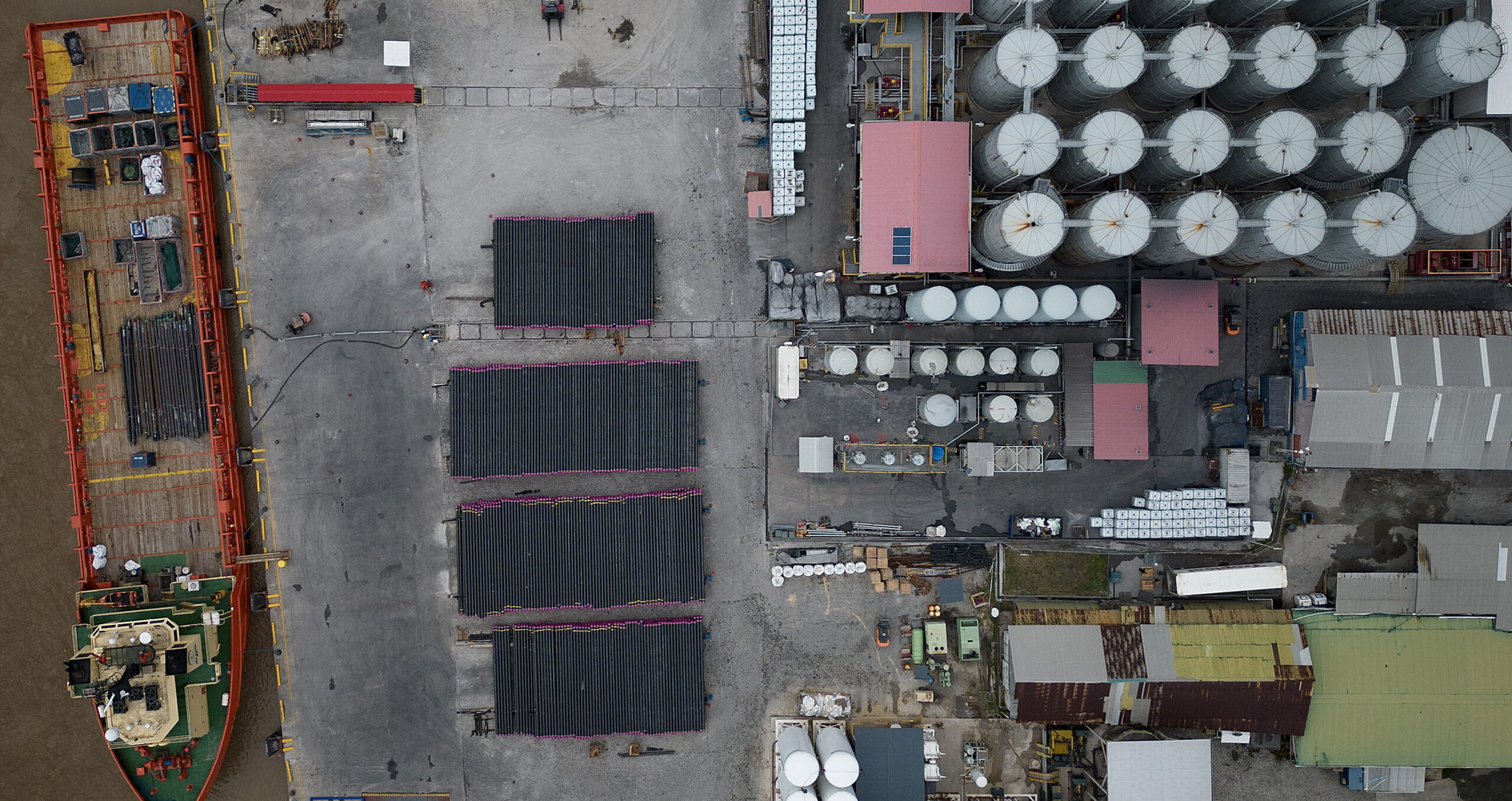
Editor’s note: Big Oil, Guyana and the just transition

The latest edition of our Sustainable Views newsletter
Dear reader,
How should the principles of a just green transition apply to new oil? This is a question many have pondered since the discovery of significant oil reservoirs off the coast of Guyana, one of Latin America’s smallest and poorest economies, in 2015.
ExxonMobil led the consortium searching for the fossil fuel, and which included Hess – the oil company recently taken over by Chevron. The controversy over a big oil acquisition has now compounded that over the new oil contract with the Guyanese government.
Many had noted – and criticised – the unusually favourable terms the Exxon-led group of companies secured from the government. Some are now calling for a review of those terms, after the Chevron-Hess tie-up brought the spotlight back on the Latin American discovery.
Others believe these won’t change, but point to Guyana’s stronger negotiating stance for future contracts, including, for example, the request of a 10 per cent oil royalty, compared with the 2 per cent granted to the Exxon consortium.
You can find some interesting articles on this here (if you have a Financial Times subscription) and here (an earlier, free-to-read piece from our fDi Intelligence colleagues packed with useful charts).
My initial question, however, remains unanswered. As oil revenues come in, Guyana’s economy is growing at record levels: 62.3 per cent last year, according to the IMF – the world’s highest rate in 2022. It is expected to show a 38 per cent increase this year.
The petrodollars are creating a source of funding that the government says will be used to improve access to social services and expand agriculture, tourism and manufacturing activities. In theory, this is all positive. In practice, Guyana has little other alternatives to get itself out of poverty quickly.
So, realistically, what can help to make this as “just” as possible a situation is to keep fleshing out the details of the Guyana deal – as well as those of any other fossil fuel contract that, though contributing to climate change, can support economic development where needed. This is probably where international media can play its most useful role too.
The devil, as sustainability professionals know, is very much in the detail. So, as part of today’s coverage, we begin to zoom in on the development of a new market – that of biodiversity credits. If you are (understandably) already overwhelmed by the controversy over the voluntary carbon market, this may push you over the edge.
Proponents, however, insist that the scrutiny of the VCM will help shape biodiversity schemes of quality and integrity. Read Florence’s piece to find out more – and let us know your thoughts on the initiatives she mentions, from the UK and France to Australia.
Florence has also looked at recent EU rules banning microplastics. In a rare case of niche EU rulemaking grabbing international headlines (and TV talent show commentary), there is more to the regulation than prohibiting the use of glitter in favour of “environmentally friendly” alternatives.
Find out the details and which other industries beyond cosmetics will be affected in our piece.
Lastly, we share a report on how human demand for natural resources has resulted in an “ecological overshoot”. Climate scientists warn that we are now “entering uncharted territory” and call for new research into the poorly understood “climate feedback loops”.
It’s a fascinating – though deeply concerning – read.
Until tomorrow,
Silvia
Silvia Pavoni is the editor of Sustainable Views
Similar Articles

Editor’s note: tariffs and trade policies

Editor’s note: biodiversity, breakdown and batteries


